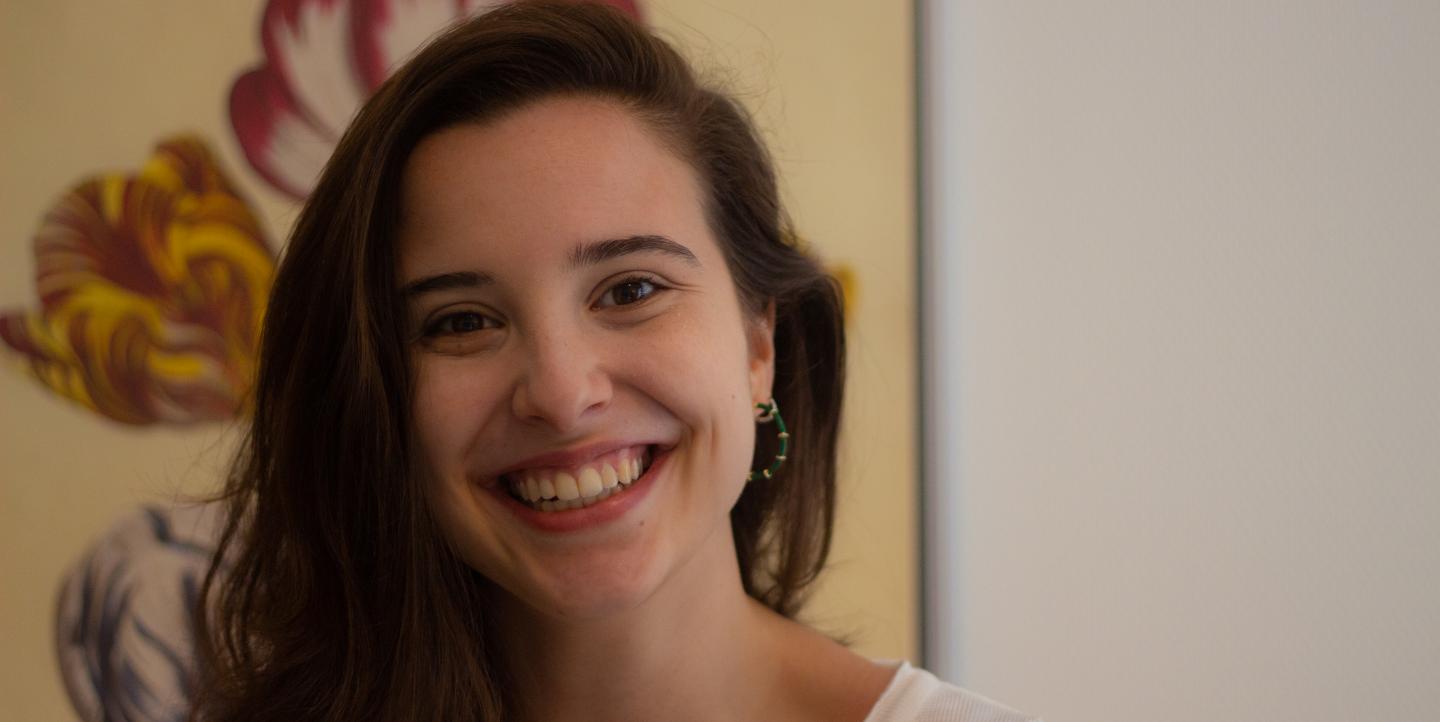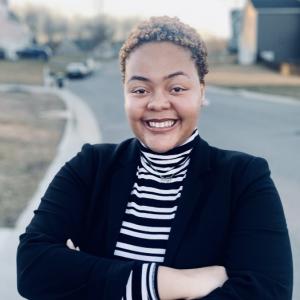While covering Brazil’s 2018 presidential election, Brazilian data journalist Giovana Fleck reported on and truly witnessed the spread of misinformation for the first time. That was when she decided that data and politics were destined to be her beat.
“It was my first time as a reporter covering disinformation and seeing disinformation spread so loudly. From this experience, I understood that I had to specialize myself a little bit more and figure out what triggers this kind of behavior and how people use journalism as a tool that can help prevent disinformation from spreading so much,” said Fleck.
In 2019, Fleck decided to move to Amsterdam to learn as much as she could about covering politics outside of Brazil.
“At the beginning of my career, I felt that I needed to know everything. I thought, I need to really take a deep dive inside of political coverage and I really need to understand how this whole thing works in different countries,” said Fleck.
Despite the struggles that accompany gaining access to reliable data, Fleck has worked as a multimedia journalist to produce captivating investigative projects on human rights and politics for several outlets including Global Voices and BBC News.
Here, Flecks sheds light on the obstacles women reporters face, her favorite projects she’s worked on, the role data plays in her reporting, how IJNet has helped her become a better journalist and what advice she would give other data journalists.
[Read more: Agência Lupa’s Natália Leal counters misinformation with persistent fact-checking]
What kind of obstacles do you face as a reporter who specializes in data and political journalism?
I think that in terms of challenges, I would say that ultimately access to information is something that now is much more widespread than when I started. I think one thing that came out of the pandemic was that it's making everything digital and information is much more accessible now. Before COVID-19, we had to actually look for very expensive courses to improve our skills or to learn a little bit more.
After becoming a reporter, I would say that the biggest obstacle that I face is the fear of being attacked. It is something that is so common, especially for women reporters and journalists. I'm always trying to protect myself to the best of my ability. I'm always trying to protect myself digitally, protect my family, protect everything that I can.
You have worked on countless projects, from films to research stories, what has been your favorite to work on and why?
There is one project that is deep in my heart, which is my first piece I did as a freelancer. I edited this documentary by a brilliant photographer and cinematographer from Brazil, two actually, Lucas Landau and Lucas Dumphreys. They went to this remote part of Brazil that was affected when a dam broke.
This was one of the biggest catastrophes in Brazil, but in that specific community, the dam contaminated the entire river and the community was a fishing village, so they could not fish anymore. The kids could not go to the river, so they documented how life in that community changed and how it really got bad because of that and because the government wasn't paying attention to their specific needs.
How does data play a role in your stories and what kind of stories have you written that incorporate data?
Both quantitative and qualitative data are things that I usually base my studies on. I am trained as a programming data journalist, but I do see data as something that is not only numbers in a spreadsheet, but also something a little bit more tangible. It could be like a list of complaints made by a group of people in a specific area and then you have to deal with that in a more qualitative way.
I've just been nominated for two awards in Brazil. We were the first reporters to ever investigate how much money the Brazilian government was investing in women since the beginning of the Bolsonaro government, and we saw that 400 million reais were missing from the total sum. So they were never used towards women and they basically just went back to the federal government to never be used again.
[Read more: Embrace your inner nerd to improve your journalism]
How has being a scholar in Erasmus Mundus’ Master’s program helped you become a better reporter?
I think that the best thing that Mundus did for me was really put me in contact with people from parts of the world that I would never have access to and like it's really doing it in a setting that is both very social, but also very academic. I’m in the kind of environment where I can ask all kinds of questions, and since people are asking you questions there is that kind of intimacy that nothing is forbidden.
I also think it changed my approach to collaboration. I was much more open to collaborate with other journalists after my program because we were incentivized to do things together. In Brazil, I was taught to do the opposite. I was incentivized to do things on my own and then come back to the newsroom and report on my own.
What advice would you give other Brazilian reporters who wish to focus on data journalism?
Don't expect data journalism to not involve other people. Don't expect that it's going to be programming in your room and never talking to anyone. I think the best stories are the ones that actually call for people, and you kind of bridge things together.
I would [also] say try to create a community. There are amazing resources online now, and you should reach out to other women in data. There are tons, especially on Twitter. There's one really good group for people who code in Python called PyLadies. So you can reach out to them and just have a more chilled approach to coding.
Photo courtesy of Giovana Fleck.


